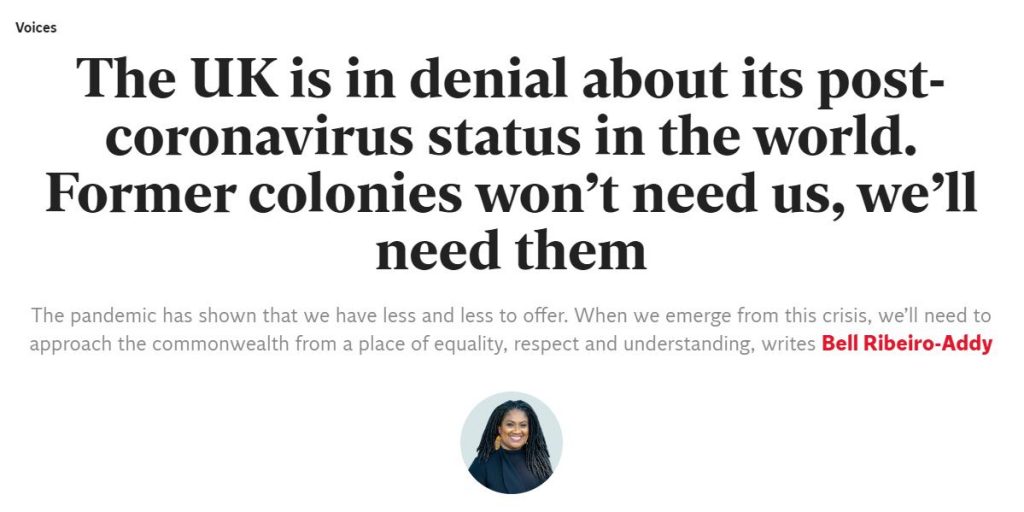
The coronavirus will change the world as we know it. Every nation has had to re-evaluate themselves and their priorities and when it is over, every nation’s standing in the world will be re-evaluated for them. None more so than Britain. Discussions about Britain’s place in the world began as part of our never-ending Brexit saga, but if the way we handled that didn’t expose us, then our handling of coronavirus certainly will. While we continue to trade off the nostalgia of being world leaders, the pandemic is showing the world that we are leading nothing.
While other countries offer residency to migrants, we maintain detention centres and no recourse to public funds. While other countries provide universal basic income, we leave the self-employed in limbo and offer small business owners relief in the form of debts. And while Cuba sends doctors around the world to fight Covid-19, staff in our chronically under-resourced NHS use bin liners in place of proper, personal protective equipment.
During a recent Urgent Question about Jamaica deportation flights, a Conservative MP remarked that “British citizenship was a privilege, not a right”. Yet as I write, hundreds of thousands of British nationals are stranded abroad. British consulates have closed their doors and unplugged the phones. Brits look on as other countries pull out all the stops to get their citizens safely home. Some of the first countries to shut their borders to “Europeans” were former colonies. The world we know and our place in it is already changing.
Just before our official departure from the EU, I made my maiden speech in a debate on Global Britain, which was clearly meant to be a celebration of our standing in the world. I said: “It strikes me that as a country we cannot begin to fulfil the idea of global Britain until we first address the historic injustices of the British empire, injustices including slavery and colonialism; first, because it is the right thing to do, but also because we may soon find ourselves out in the cold if we do not.”
The one thing that I agree with ardent Brexiteers on is that Commonwealth countries could be our most fruitful trading partners after Brexit. But while my comments were overwhelmingly welcomed by people across the Commonwealth, they were met with ridicule and racist abuse here at home. And herein lies our problem.
Advocates of “Global Britain” clearly hearken back to the last time when Britain really did have global power. But there’s underlying bathos to the phrase in a time when power bases are shifting. This was exemplified by Theresa May’s unsuccessful trade visit to India in 2016, where talks floundered over migration and Brexit. More recently, a Foreign Affairs Select Committee report on the UK’s relationship with India stressed that the UK’s failure to become more open to overseas workers, students and tourists, would limit our capacity to build new trading relationships.
The recent publication of the Windrush Lessons Learned Review highlighted the institutional racism that underpins our approach to immigration. This racism and the way we view the Global South has roots in slavery, colonialism and empire. So, it stands to reason that until we address these historic ills, we will continue to alienate the countries whose friendship will be paramount after Brexit.
Instead of doing this, the government introduced its glossy continuation of the hostile environment: a “points-based” system cloaked in rhetoric, but not enough to conceal its concession to anti-migrant sentiments. Even at a potential economic cost. While we pander to populist ideas about immigration, we have fallen from being India’s second-largest trade partner in 1998-99, to its 17th in 2018-19. In a world outside the EU, are we really so arrogant to think that we can call all of the shots with India, a country which recently surpassed the UK to become the fifth-largest economy in the world?
We saw this same disregard at the recent UK-Africa trade summit, dubbed the “scramble for Africa”. The prime minister’s speech showed he had not been listening to African leaders at all, making no reference to Africa’s past and perhaps more surprisingly, no reference to its future – the African common market. When established, this will be the largest free trade area in the world, and there is already talk of accelerating the process to cushion African economies against a post-pandemic global recession.
The prime minister’s omission was glaring given that the summit’s whole purpose was to discuss trade with the UK after leaving the EU’s common market. Countries like Ghana, Kenya and Uganda, which Britain deliberately underdeveloped, stole resources from, and brutally enslaved, are already among the fastest-growing economies in the world. Imagine what an African market would mean, and then imagine the level of arrogance it takes to ignore it. Coronavirus is exposing a truth that should give advocates of Global Britain pause for thought: “they” do not need “us”.
As our government panders to nationalism, it would do well to remember that nationalism is not a uniquely western concept. Many Commonwealth countries will only remember a past of exploitation and a present in which they are subjected to punitive IMF conditions, crippling their social infrastructure in serving the interests of more powerful countries like the UK. Countries in the global south have their own nationalists and every one of them will tell you that their achievements are in spite of Britain’s atrocities, not because of aid or the “privilege” of being colonised.
Why does this all matter now? Coronavirus demonstrates more than ever the importance of global cooperation. It has also shown that we have less and less to offer. We will come through this crisis and when we do, we need to find a new economic foothold. But we cannot successfully do this if we’re unwilling to approach our former colonies from a place of equality, respect and understanding. We weren’t prepared for the reality of coronavirus but we must prepare to face our place in the world when the pandemic is over.
Article reproduced from The Independent’s ‘Alien Nation’ series: https://www.independent.co.uk/voices/coronavirus-uk-brexit-commonwealth-empire-india-africa-trade-a9446711.html
